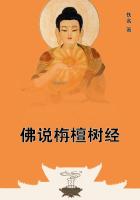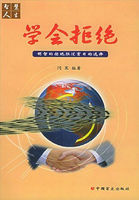Consider, also, the personal initiative displayed in uhe formation of a war-party among the Omahas, as described by Dorsey, and note how little it differs from the way in which commercial and other enterprises are started at the present day.
(111)
" It is generally a young man who decides to undertake an expedition against the enemy. Having formed his plan he speaks thus to his friend:
'My friend, as I wish to go on the war path, let us go. Let us boil the food as for a feast.' The friend having consented, the two are the leaders . . . if they can induce others to follow them. So they find two young men whom they send as messengers to invite those whom they name.... When all have assembled the planner of the expedition addresses the company.
'Ho! my friends, my friend and I have invited N'OU to a feast, because we wish to go on the war path.' Then each one who is willing to go replies thus: 'Yes, my friend, I am willing.' But he who is unwilling replies, 'My friend, I do not wish to go, I am unwilling.' Sometimes the host says, 'Let us go by such a day. Prepare yourselves.'" [6]
The whole proceeding reminds one also of the way games are initiated among boys, the one who "gets it up" having the right to claim the best position. No doubt the structure of some tribal societies permitted of less initiative than others; but such differences exist at all stages of culture.
Self-feeling, self-assertion and the general relation of the individual to the group are much the same at all epochs, and there was never a time since man became human when, as we sometimes read, " personality emerged " Change has taken place chiefly in the extent and character of the group to which the individual appeals, and in the ways in which he tries to distinguish (112) himself. The Germanic tribesman, the mediaeval knight, the Renaissance artist or scholar and the modern captain of industry are alike ambitious:
it is the object that differs. There has indeed been a development of personality in history, but it has been correlative with that of the general life, and has brought no essential change in the relation between the two.
In tribal life, then, since the conditions did not admit of wider unification, public consciousness could be only local in scope. Beyond its narrow range the cords which held life together were of a subconscious character?heredity, of course, with its freight of mental and social tendency; oral tradition, often vague and devious, and a mass of custom that was revered without being understood. These wider relations, not being surveyed and discussed, could not be the objects of deliberate thought and will, but were accepted as part of the necessary order of things, and usually ascribed to some divine source. In this way language, laws, religion, forms of government, social classes, traditional relations to other clans or tribes梐ll of which we know to have been built up by the cumulative workings of the human mind梬ere thought of as beyond the sphere of man's control.
The wider unity existed, then as now; human development was continuous in time and, after a blind fashion, cooperative among contemporaries. The tools of life were progressively invented and spread by imitation from tribe to tribe, the fittest always tending to survive; but only the immediate details of such changes were matters of consciousness: as processes they were beyond human (113) cognizance. A man might adapt an ancient custom to a fresh emergency, but he would be unaware that he was shaping the growth of institutions.
There was even a tribal or national opinion, of a slow? subconscious sort a growth andI consensus of idea upon matters of general and enduring interest, such as religion, marriage and government. And, under unusual pressure, some more conscious unity of spirit might be aroused, as among the Germans or Gauls confederated against Rome; but this was likely to be transient.
The central fact of history, from a psychological point of view, may be said to be the gradual enlargement of social consciousness and rational cooperation. The mind constantly, though perhaps not regularly, extends the sphere within which it makes its higher powers valid. Human nature, possessed of ideals moulded in the family and the commune, is ever striving, somewhat blindly for the most part, with those difficulties of communication and organization which obstruct their realization on a larger scale. Whether progress is general or not we need not now inquire; it is certain that great gains have been made by the more vigorous or fortunate races, and that these are regarded with emulation and hope by many of the others.
Throughout modern European history, at least, there has been an evident extension of the local areas within which communication and cooperation prevail, and, on the whole, an advance in the quality of cooperation as judged by an ideal moral unity. It has tended to become more (114) free and human, more adequately expressive of communal feeling.
Perhaps all apparent departures from this tendency may plausibly be explained as cases of irregular growth. If we find that vast systems of discipline, like the Roman Empire, have broken down, we find also that these sys tems were of a low type, psychologically, that the best features of them were after all preserved, and that the new systems that arose, though perhaps less in extent, were on the whole a higher and fuller expression of human nature.















